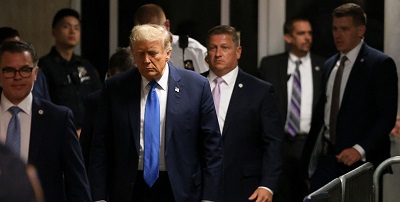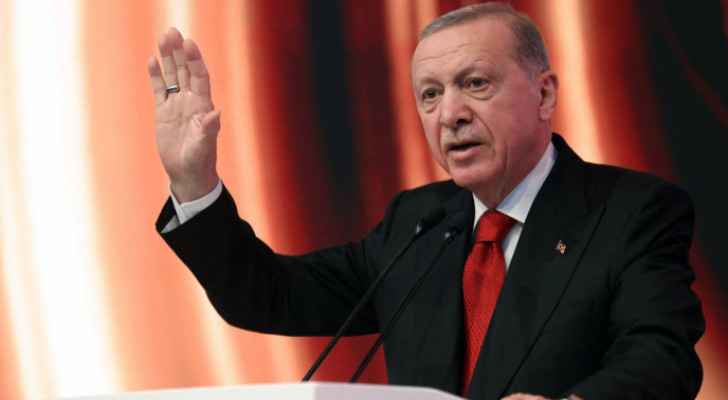Yes… We’re Grudging and Imagining - By Hazem Saghieh, Asharq Al-Awsat
In 1968, the Warsaw Pact’s tanks crushed what was known as the “Prague Spring.” Czech intellectuals bore the lion’s share of the repression overseen by Secretary-General Gustav Husak and the bigger Secretary-General behind him, Leonid Brezhnev. Imprisonment, surveillance, lay-offs from work, emigration, despair, and cases of suicide and divorce… The plight Czech intellectuals faced at the time, which went on for many years, nourished countless literary and cinematic works. It has also become among our contemporary world’s most prominent classic historical plights endured by intellectuals and elites.
The prominent role that education, the media, and publishing play in Lebanon- all of which are freedom’s graces to us- has granted the country’s cultural scene distinct standing. This standing did not merely turn into one of the sources of the county’s economic growth; rather, it became equated with it, a second meaning for it or another indication of its life: without the ability to doubt, criticize and disagree on everything, i.e., without freedom, this country would no longer have a justification for its existence. This applies whether it is divided or united, liberated or occupied. These become, in the Lebanese case, mere details and additions.
Today, Lebanon’s cultural milieu is suffering from a besiegement of the Czech variety. Just as the plight emerged in Prague after its revolution was trampled, a Lebanese plight is emerging after the two successive counter-revolutions in Syria and Lebanon, the only consequences of which have been more killing, poverty, and futility. And who knows, the siege on Lebanese intellectuals and creatives could exacerbate and become even worse. Indeed, the disciplined empire that was the Soviet Union and its bloc may have been more merciful than the emerging chaotic empire with its Iranian center. There, weapons were chief among the many sources of power and tyranny. Here, all power is derived from weaponry, with only the void by its side: in this empire’s shadows, all the Lebanese are undergoing an economic collapse, political impasse, and disassociation from the world, in addition to the crime of nearly nuclear proportions that struck their port in Beirut. All of this is being experienced as if it were without a reason or source. But mind you: we still have one thing; it’s called resistance, and it is supposed to compensate for losing all those other things!
Going back to the cultural milieu in particular, we can notice that, not far from Haret Hriek (a neighborhood in Beirut’s southern suburbs), Lokman Slim’s resting place, universities, research centers, media outlets, and publishing houses are being killed, each in their own way, but all of them breathe under this empire’s shadow, which has had a divergently decisive role in each assassination, either direct or indirect.
Amid this plight, and in the midst of the total absence of law and accountability, demands for “international protection” have begun to reverberate in Lebanon, with little confidence in the potential for its materialization, multiplying the pain and adding bitterness to it.
Lokman Slim’s assassination stirred up this demand that is being circulated among intellectuals, journalists, and writers, adding it to demands that had been determined and circulated before it, like the adoption of neutrality and the internationalization of Lebanon, and before them, the International Tribunal. The dominant sentiment is that everything local does not protect: the state, its laws, and its judicial apparatus have done everything needed to entrench this conviction. The precedents are too many to count.
Many have become sure that the source of the solution, if it is a solution, can only come from the world outside. And if it doesn’t come now, then it may come tomorrow.
As they waited for that tomorrow, the Czech intellectuals “betrayed” “the socialist homeland” defending a free homeland that became equated with free culture. This “betrayal” came through emigrating, as those who could emigrate did, or with intentions to do so, as those who couldn’t did. Those who were thrown into a prison, a sanatorium, or unemployment, went about masterfully imagining another country, one where freedom pervades and the decisions that shape their lives are made by Czechs, not the patriarchal center in Moscow. Twenty years later, this center fell, and those “traitors” regained their homeland and their freedom. Many of Lebanon’s intellectuals are “betraying” this senseless, criminal patriotism, either by immigrating or wishing to do so, but also by mastering the art of imaging a country that is a homeland, where the empire of the silencer and accusations of treachery collapses.
Today, the cultural milieu is saying it is not among the worshipers of the nation when it becomes a sanctuary for obedience that punishes freedom, and that it is not among the worshipers of liberation when it becomes a shortcut for a choice between being enslaved and being murdered. In the meantime, imaginations run far and wide, unbounded by bogus sacred limits or a border that splits the inside from the outside. Here, a battle is being fought for the homeland, freedom, and culture simultaneously.
Latest News
 Prosecution lays out ‘criminal conspiracy’ in historic Trump trial
Prosecution lays out ‘criminal conspiracy’ in historic Trump trial King from Madaba: Jordan has always proven its ability to move forward with persistence of Jordanians
King from Madaba: Jordan has always proven its ability to move forward with persistence of Jordanians Safadi discusses war on Gaza with French, German delegations
Safadi discusses war on Gaza with French, German delegations Erdogan arrives in Baghdad for first official visit since 2011
Erdogan arrives in Baghdad for first official visit since 2011 “Israeli” army says it approved plans for “continuation of war in Gaza”
“Israeli” army says it approved plans for “continuation of war in Gaza”
Most Read Articles
- Safadi discusses support to Syrian refugee with DRC
- King, Kuwait emir reaffirm pride in deep-rooted relations
- Israeli Occupation aggression on Gaza enters 200th day
- Jordan condemns Israeli 'war crimes' in Gaza, calls for accountability
- UNRWA’s role in Gaza indispensable — Foreign Ministry
- General Motors lifts 2024 profit forecast after strong Q1
- Azerbaijan says ‘closer than ever’ to Armenia peace deal amid border talks
- The ideological coup: How disciples of Kahane became the new face of Israel - By Ramzy Baroud, The Jordan Times
- Sustainable economy and zero-growth - By Ayoub Abu Dayyeh, The Jordan Times
- Baby delivered from dying mother's womb in Gaza 'miracle'